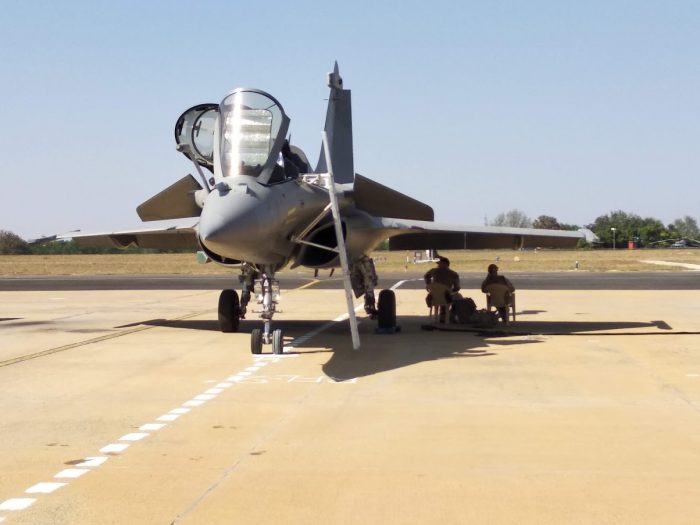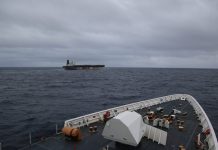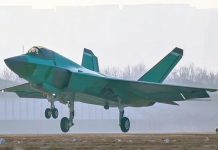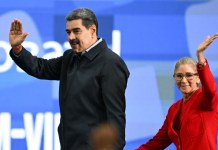Recently, a French report claimed that Rafale fighter jet-maker Dassault Aviation paid one million euros to a middleman during the 2016 Rafale deal with India that created a massive political storm in the country.
- At €7.8B, Why Indian Rafale Jets Are ‘Double The Cost’ Than Egyptian Rafales?
- Why Did Netizens ‘Mock’ Nigeria For JF-17 Deal With Pakistan?
According to Mediapart, the irregularity was first detected by the French anti-corruption agency AFA upon examining a ‘suspicious payment’ made by Dassault Aviation to an Indian defense company in 2017-18.
The transaction was reportedly labeled as “Gifts to Clients” under “an expenditure by Dassault”, which the company justified by saying it was for the manufacture of 50 Rafale replica models, on 30th March 2017.
According to the news report, Dassault was unable to explain why it needed an Indian company to make models for a French aircraft that too at 2000 euros apiece. The company also failed to provide evidence to the anti-corruption agency of the ‘models’ envisaged to be manufactured under this agreement.
Mediapart claims to reveal a payment of one million euros made to a middleman related to the 7.8-billion-euro deal for the purchase of 36 Rafale jet fighters by India.
Now, another report by Mediapart claims that a French judge has been appointed to head a probe into suspected “corruption and favoritism” in the Rafale deal.
“The highly sensitive probe into the inter-governmental deal signed in 2016 was formally opened on June 14,” Mediapart said. It said the development was confirmed by the financial crimes branch of the French public prosecution services.
Mediapart claimed that the former head of the financial crimes branch of France’s public prosecution services, Éliane Houlette, shelved an investigation into alleged evidence of corruption in the Rafale jet deal despite the objection of colleagues. It said Houlette justified her decision to shelve the investigations as preserving “the interests of France, the workings of institutions.”
“Now, her successor, Jean-François Bohnert, has supported the opening of an inquiry, after the complaint was updated with details from Mediapart’s recent series of investigations.”
The criminal investigation, according to reports will “examine questions surrounding the actions” of former French president François Hollande, who was in office when the Rafale deal was inked, current French president Emmanuel Macron, who was at the time Hollande’s economy and finance minister, and foreign minister Jean-Yves Le Drian, who was then the minister of defense.
Rafale Deal With India

Dassault is reported to have paid the amount to one of its sub-contractors in India, Defsys Solutions, owned by Sushen Gupta, who was also accused of money laundering in March 2019 by the Enforcement Directorate, related to the AgustaWestland scam. Sushen was arrested and later released on bail, while the company continues to do business.
The Rafale deal has been repeatedly in controversies ever since the deal was first signed under the Congress government. Again in 2016, as the newly formulated deal of buying only 36 jets was completed, allegations of corruption were again exchanged between the opposition and the ruling party.
Later, the supreme court gave a clean chit to the Narendra Modi government on allegations of irregularities in the procurement of the jets in 2018.
Officially, everything was clean and the Indian Rafale deal 'affair' was nothing but a mirage.
Yet in reality there is a scandal, as @Mediapart can today reveal with the publication of the “Rafale Papers”, a 3-part investigation into the affair based on numerous documents. pic.twitter.com/af4u4qzhrn
— Antton Rouget (@AnttonRouget) April 4, 2021
However, the experts don’t smell a rat in the entire procurement process related to the multirole French fighter. The explanation is straight enough – there were too many reasons for India to go for Rafale and not choose any other jet.
Why Rafale Fighter Jets
As the strategic affairs analyst Nitin J Ticku explains, “the Indian Air Force has been a long-standing and happy user of the French fighter jets, starting its relationship with the Dassault Ouragan in the 1950s.
India has been highly appreciative of the performance of its French Mirages, which helped the country achieve major victories, including the 1999 Kargil airstrikes against Pakistan.
Even on a critical mission like Balakot, India sent its Mirage-2000 jets to bomb enemy hideouts (and not the latest Su-30 MKIs) across the border, which is a testimony to the amount of trust the IAF places on the fighter.”
Moreover, the Indian air force’s familiarity with French warplanes such as the Mirage makes the new arrangement easier, and there is a greater understanding and experience of working together, he adds.
Rafale and Eurofighter Typhoon were the two jets shortlisted in the Medium Multi-Role Combat Aircraft (MMRCA) competition. The problem with Eurofighter Typhoon was that it was owned by four different nations, each with its own foreign policy and attitudes towards foreign military sales, which made the Indian officials skeptical of their reliability.
And the most important reason for going for Rafale, as highlighted by the former Indian ambassador to France Rakesh Sood to The Print, was that the French did not mind modifications on the fighter to enable it to carry nuclear weapons. That capability modification was reportedly denied by the Typhoon consortium.
“On the other hand, Delhi was not so certain about the Eurofighter, as it would involve clearing it with multiple countries including Germany,” he told The Print.

Eurofighter is owned by Germany and Spain’s Airbus Defence and Space, with 46 percent stake, Britain’s BAE Systems with 33 percent stake, and Italy’s Leonardo with 21 percent stake.
“Germany has strong non-proliferation credentials, and New Delhi didn’t want to take a chance with Berlin making uncomfortable noises on this count, Sood added.
Experts also say the variety of weapons were also an important factor for India to purchase Rafale: India’s weapons range is mostly French-made, and therefore, any third-party embargo can never apply. Then there’s the same story with the sensors.
France A Vital Indian Ally
Coming to political reasons, France has been steadfast in its support for India on the international stage, and unlike the United States, can be relied on when India needs support on international forums such as the UN where the former holds a veto, Ticku adds.
Whereas, the relationship with the US can be complicated and mostly unreliable, especially when it comes to the military sale of military equipment. The US had stopped F-16 deliveries to Pakistan even when the country had made the payments, and when India was looking for components for its Light Combat Aircraft (LAC) which the country was developing, the former had either tried to veto or slow the deliveries. The US, therefore, could not be counted on.
One then reaches the conclusion that there wasn’t a worthy choice except the Dassault Rafale jets for the Indian government, thereby raising questions on the veracity of the reports of bribes or the involvement of commission in the procurement.
Any bribes, even if they did take place, were probably a waste and an unnecessary bargain.
READ MORE
Follow EurAsian Times on Google News




